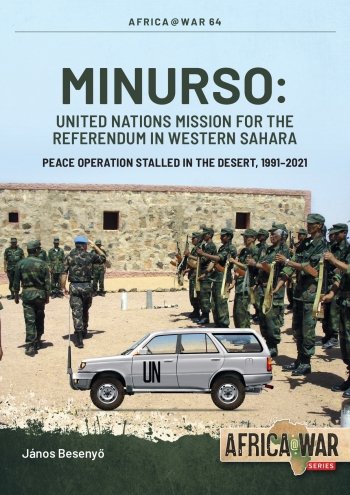-
Załączniki bezpieczeństwa
Załczniki do produktuZałączniki dotyczące bezpieczeństwa produktu zawierają informacje o opakowaniu produktu i mogą dostarczać kluczowych informacji dotyczących bezpieczeństwa konkretnego produktu
-
Informacje o producencie
Informacje o producencieInformacje dotyczące produktu obejmują adres i powiązane dane producenta produktu.HELION
-
Osoba odpowiedzialna w UE
Osoba odpowiedzialna w UEPodmiot gospodarczy z siedzibą w UE zapewniający zgodność produktu z wymaganymi przepisami.
In 1975 Spain relinquished control of its former colony of Spanish Sahara following a short conflict with the Polisario, the armed movement representing many of the native Sahrawi people. In the wake of Spain’s withdrawal, neighbouring Morocco and Mauritania divided and occupied the territory. In a fierce guerrilla war that saw the Polisario raid deep into Mauritania and even directly attack the capital city, the latter nation gave up any claim to Western Sahara in 1979 and withdrew. Morocco, however, chose to continue their occupation, building a massive berm stretching for hundreds of kilometres in an effort to contain the Polisario, and fighting continued until a ceasefire was agreed in 1991.
One key element of the 1991 agreement was that a UN supervised referendum would be conducted to determine the future of Western Sahara. To that end MINURSO (Mission des Nations Unies pour l'Organisation d'un Référendum au Sahara Occidental) was created to oversee the ceasefire and organise the referendum. Over 30 years later, however, that referendum has still not taken place despite the original agreement and the involvement of some of the late twentieth century’s leading diplomats, and contrary to its previous promises, Morocco is only willing to grant a “high degree of autonomy” in the occupied Western Sahara. The Sahrawis and Polisario refuse to accept this, thus the conflict remains unresolved and ever on the brink of reigniting.
The author of the book, János Besenyő, a professor at Óbuda University in Budapest, Hungary, and who served as a peacekeeper in MINURSO, presents the history of the area, the path leading to the creation of the mission, and its operation over the past three decades, and provides a detailed description of the mission’s team sites and the opposing forces of the Polisario and Morocco. This book draws upon several previously unpublished documents as well as previously unpublished photographs taken by peacekeepers. This book is recommended not only to military, foreign policy and diplomatic experts, but also to anyone interested in the history of the region, the events there, and the oldest peacekeeping operation in Africa.








